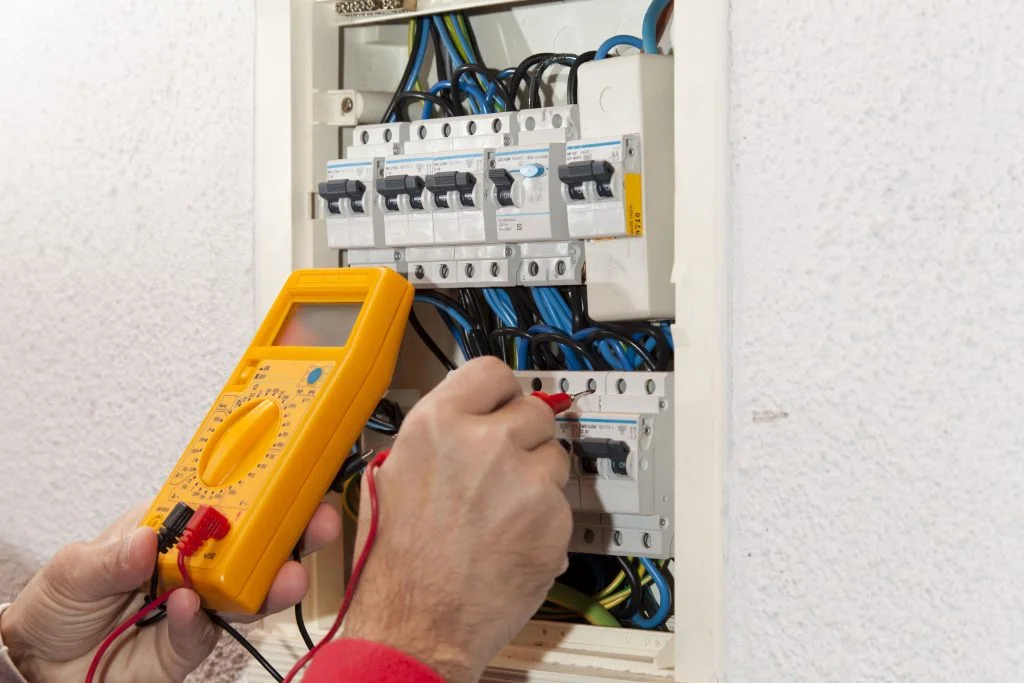When did you last think about the condition of your electrical panel? Most houseowners usually ignore their electrical panels. Electrical panels serve as the essential center of home electrical networks because they assign power to household sections operate all appliances and maintain lighting functionality. An old or excessively used electrical panel presents safety risks and generates both frustrating issues and safety concerns. It’s important to be aware when an electrical panel upgrade becomes necessary. This blog will explore 10 direct signals that tell you should change your electrical panel while neglecting these signals will bring financial burdens beyond comfort issues.
At Exclusive Electric Services we offer all electrical services including installation and repair of electrical systems, this experience inspired us to create this guide of warning signs that tellyou it’s time to upgrade your electrical panel.
Indicators You Need a New Electrical Panel

The process of panel replacement not only offers home transformation it also ensures electrical safety and improves operational efficiency while creating power reserves for future use. The signs of an outdated electrical panel can lead you to well-informed decision-making when considering a renovation or dealing with frequent breaker issues and light flickering.
1. Frequent Circuit Breaker Trips
When putting the vacuum cleaner into a socket you discover that the power supply stops working. The regular operation of your circuit breakers indicates that your electrical panel could be at its maximum capacity.
- Breakers keep tripping to protect homes from excessive electrical load. Too frequent circuit interruptions show that your panel has reached its limits in handling current household needs.
- Repeated circuit tripping represents a danger because it endangers both your electrical system and fires can occur. Frequent breaker trips do not only create nuisance but they present actual safety dangers.
2. Flickering or Dimming Lights
During appliance usage, your lights start to flicker periodically. That’s not normal. The sudden breakdown of electrical voltage from heavily loaded circuits produces the effect of flickering and dimming light sources.
- Sudden voltage drops caused by overworked circuits can lead to flickering or dimming lights.
- Multiple rooms or fixtures experiencing dimming or flickering require evaluation since it indicates possible panel failure or old age of electrical infrastructure.
3. Outdated Fuse Box Instead of a Breaker Panel
If you are still using a fuse box instead of the breaker panel then you need immediate updating.
- Fuse systems show no safety flaws by themselves but modern electrical requirements have made them obsolete. The wrong fuse replacements by former owners create fire hazards that increase the risk of danger.
- Modern panels provide superior operational safety and reliability through better circuit breakers which reset easily while handling modern power requirements easily.
4. The Panel Is Over 25 Years Old
If the available time on your panel is reaching its limit, then it’s also a clear sign of upgradation.
- The average operational time for electrical panels is limited to twenty-five to thirty years. The components reach that extent it produces unsafe conditions.
- Modern technology progress surpasses the power capabilities of older power panels. Panels released before the modern era did not incorporate features that support appliances and electronics or smart home technology.
5. Strange Smells or Burn Marks
Burning smells or marks are indications that draw your attention towards upgradation.
- Hot panel surfaces along with burnt odors and scorch marks indicate thermal damage from either loose wires or overloaded electrical current.
- Identify these red flags by turning off power first and then phoning a licensed electrician. This is a serious fire risk.
6. Appliances Not Running at Full Power
Low performance of the microwave or dryer indicates low power supply that indicates the time for upgradation:
Underpowered appliances wear out faster, waste energy, and work poorly.
Modern panels distribute electricity efficiently and ensure your devices run smoothly and safely.
7. Lack of Enough Outlets
If your living space is messy like a jungle of extension cords, due to a lack of outlets show panel update is necessary.
- Using too many power strips is a fire hazard and a sign you don’t have enough circuits.
- A new panel will support additional circuits so you can add outlets where you need them without messy chaining.
8. Adding New Major Appliances or Renovating
Planning to add a hot tub, or electric vehicle charger, or renovate your kitchen?
- Appliances like HVAC systems, ovens, and washers can require dedicated circuits or increased amperage.
- Most older panels were built for 100 amps or less. Today’s homes often need 200 amps or more to run efficiently.
9. Buzzing or Crackling Sounds
Electrical systems should be silent. If your panel is talking, listen.
- Buzzing, sizzling, or crackling noises are signs of loose connections or faulty breakers.
- These are urgent warnings of potential fire or electrical shock hazards. So, seriously consider upgradation.
10. Insurance or Code Compliance Issues
Electrical panels affect your insurance policy.
- Insurance providers won’t cover homes with certain old panels (like Federal Pacific or Zinsco) due to fire risk.
- An updated panel brings your home up to modern codes, improves safety, and ensures better insurability.
Conclusion
Your electrical panel is not every time visible to your sight, but still, its maintenance should be in your consideration. Don’t ignore any of the following signs tripping breakers and flickering lights to insurance complications and fire hazards. Their ignorance means you are idly sitting and waiting for serious issues and mishaps. If you notice any of them, without any further delay contact us at Exclusive Electric Services to consult a professional electrician and explore your upgrade options. Considering upgradation shows home safety and efficient working is your priority.




